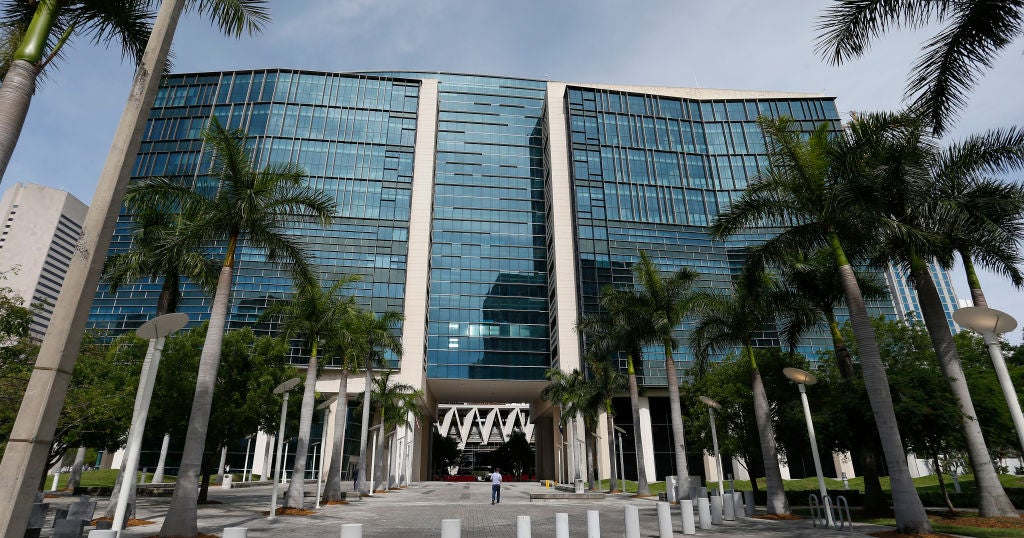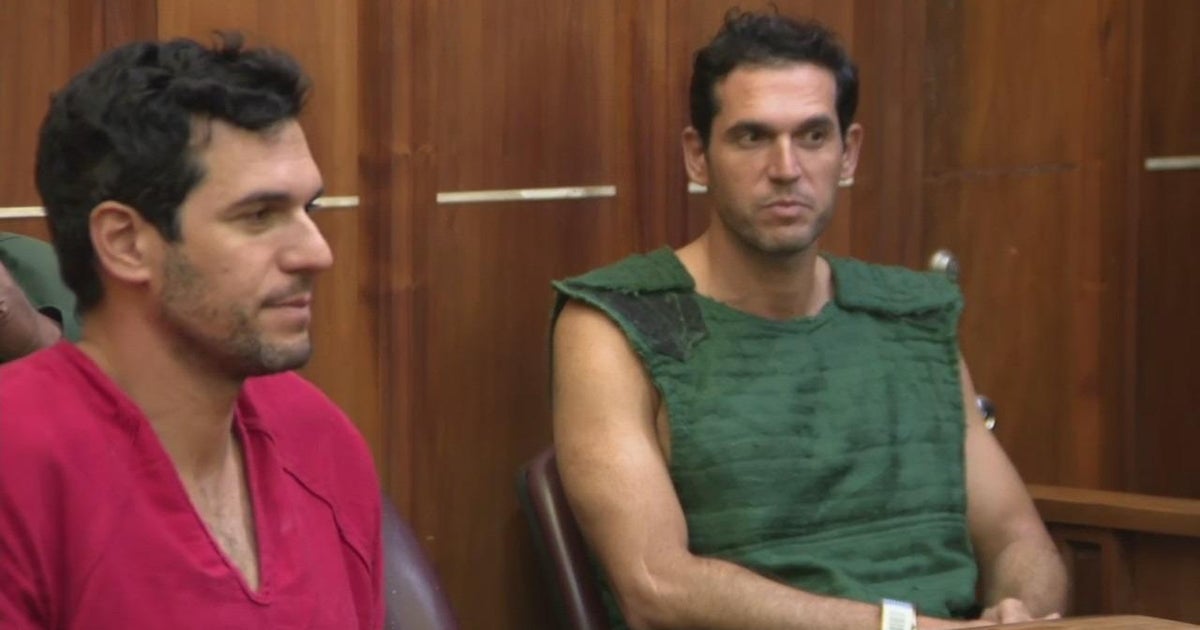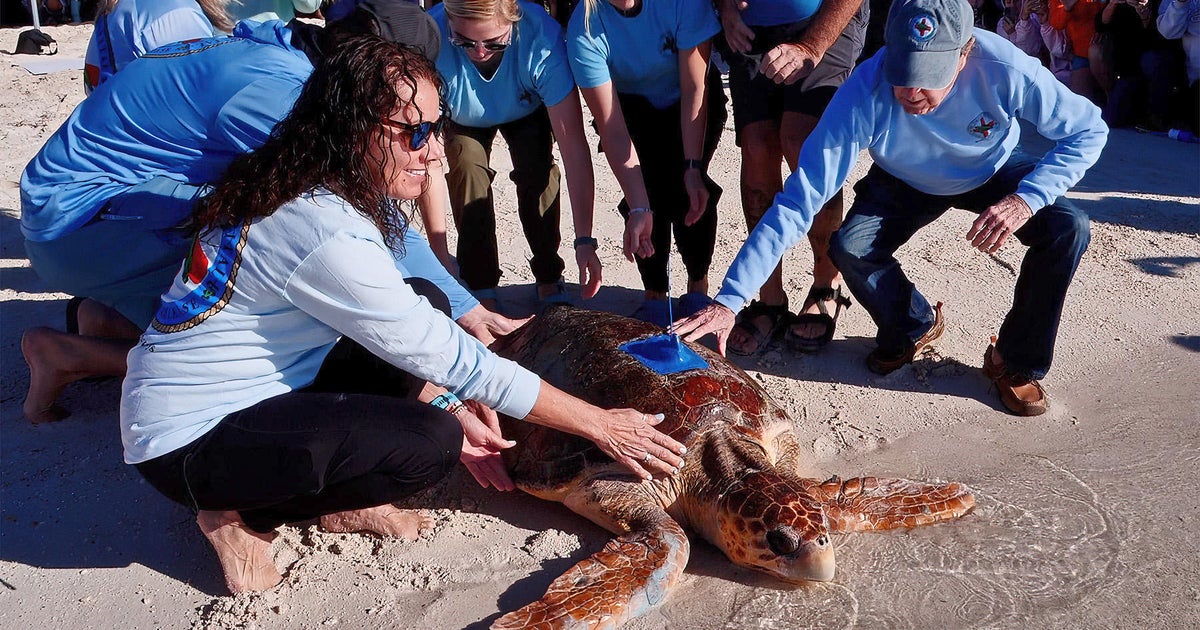UM Tackle Turned NFL Veteran Pleads Guilty To Tax Fraud
MIAMI (CBSMiami) — A University of Miami defensive tackle who played in the NFL for much of the past decade now faces prison time after pleading guilty to tax-related fraud charges in federal court Friday.
William Joseph and other defendants — including former Oakland Raider teammate, running back Michael Bennett — have been convicted of either cashing dozens of fraudulently obtained tax-refund checks in other peoples' names, or seeking a loan with fake collateral. Their take totaled hundreds of thousands of dollars, according to court records.
Joseph, 32, of Miramar, cut a plea deal in hopes of reducing his potential sentence. He pleaded guilty to theft of government money and aggravated identity theft, the latter of which carries a mandatory two-year prison sentence. He admitted cashing a $10,088.27 Treasury Department refund check in the name of a person with the initials "I.P." at a check-cashing store in North Miami in April, according to his plea agreement.
Unbeknownst to him, the store was a front for an FBI undercover operation.
Joseph, who wore a gray short-sleeved shirt and black jeans to Friday's hearing, agreed to cooperate in the ongoing investigation into tax-related fraud, according to the plea deal signed by him, his lawyer and prosecutor Michael Berger. That assistance could be a factor at his sentencing Nov. 9 before U.S. District Judge Kathleen Williams.
"He recognizes the mistake he made, and he is going to take responsibility for his actions and do what he can to repair his good name," Joseph's attorney, Roderick Vereen, told The Miami Herald.
Joseph declined to comment after the hearing.
Earlier this year, FBI agents faked out the two ex-NFL football players and a former local high school star by setting up the check-cashing "front" in North Miami. The undercover operation, using audio and video recordings, sacked:
• Joseph, who was drafted in the first round by the New York Giants in 2003 and last played with the Oakland Raiders in 2010;
• Bennett, a University of Wisconsin halfback who also was drafted in the first round by the Minnesota Vikings in 2001 and finished his career with the Raiders in 2011. Bennett, 33, of Tampa, pleaded guilty to a wire fraud charge in August, and;
• Louis Gachelin, a Miami Jackson High and Syracuse University defensive lineman who signed as a free agent with the New England Patriots in 2004. Gachelin never made the final roster. In July, Gachelin, 31, of Miramar, pleaded guilty to theft of government money and aggravated ID theft.
Authorities say the tax-fraud case, while unique because of the ex-NFL defendants, is yet another example of the escalating number of reported identity-theft crimes in Florida and nationwide.
U.S. Attorney Wifredo Ferrer has described identity theft as "America's fastest-growing crime," claiming thousands of legitimate consumers and taxpayers as victims, especially in the Miami and Tampa areas.
In May, Joseph, Gachelin and five other defendants were charged with cashing a total of about $500,000 in fraudulently obtained tax-refund checks, forging signatures on the checks and unlawfully using identification documents such as a driver's license. As part of the sting, the undercover FBI agents charged 35 percent to 45 percent in fees to cash the checks.
Bennett also tried to obtain a $200,000 loan in April from the FBI's fake check-cashing store, using a UBS financial statement falsely showing that he had $9 million in collateral, according to court records. It was Bennett's former Raiders' teammate, Joseph, who introduced him to the undercover store.
Joseph was tripped up by another defendant, Lanny Fried, 34, of Miami Lakes, who got caught trying to cash checks at the store and then began cooperating with agents to target the former NFL player. In July, Fried also pleaded guilty to theft of government money and aggravated ID theft.
In his plea agreement, Fried admitted he knew that several checks he brought to the store had been fraudulently obtained.
Here's the root of the problem: Scammers filing fabricated tax returns have exploited a hole in the IRS electronic filing system, according to the U.S. Government Accountability Office.
The federal watchdog agency found that the Internal Revenue Service does not match tax returns to the W-2 income forms that employers file until months after the filing season ends on April 15. Employers file them in late February or early March; the IRS does not match them up with employees' incomes reported on 1040 forms until June.
That's way too late to catch identity thieves who file false returns in other people's names early in the year and have already received and cashed the refund check.
The GAO says the number of ID theft-related fraud incidents on tax returns hit 248,000 in 2010, about five times more than in 2008.
According to the Treasury Department, that figure has since soared. In May, a Treasury inspector general testified the IRS reported that about 940,000 tax returns with refunds totaling $6.5 billion involved identity theft.
Those 2011 returns accounted for 42 percent of about 2.2 million "fraudulent" tax returns that year, according to the IRS.
(©2012 CBS Local Media, a division of CBS Radio Inc. All rights reserved. This material may not be published, broadcast, rewritten, or redistributed. CBS4 news partner The Miami Herald contributed material for this report.)



